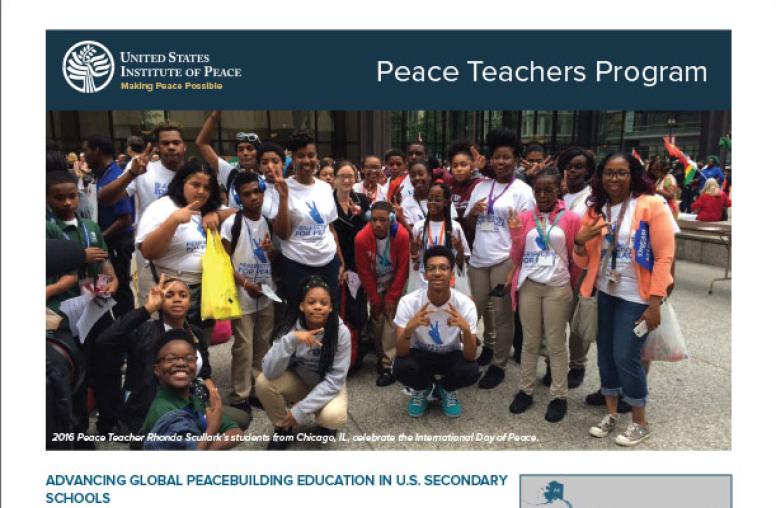Post-Conflict Health Reconstruction:
A new USIP report examines how improving health systems in post-conflict countries can help promote peace and prevent renewed violence in those nations. In "Post-Conflict Health Reconstruction: New Foundations for a U.S. Policy," USIP fellow Leonard Rubenstein looks at health indicators in various hotspots around the world, and why addressing dire health situations can help advance peace and resolve conflicts, as well as boost the U.S's image abroad.
Overview
A new USIP report examines how improving health systems in post-conflict countries can help promote peace and prevent renewed violence in those nations, and the implications of health reconstruction for U.S. policy. In "Post-Conflict Health Reconstruction: New Foundations for a U.S. Policy," USIP fellow Leonard Rubenstein looks at the impact of armed conflict on health indicators in various hotspots around the world, and the underlying connection between health and U.S. policy towards countries in and emerging from conflict. In doing so, Rubenstein argues why addressing dire health situations can help advance peace and resolve conflicts, as well as help the U.S. win hearts and minds abroad. Finally, the author takes on the timely question: if rebuilding health systems is a priority for U.S. policy, what changes should be made to U.S. foreign aid programs and agency responsibilities?
About the Author
Leonard Rubenstein is a Visiting Scholar at the Center for Public Health and Human Rights at the Bloomberg Johns Hopkins School of Public Health. He wrote this paper during his tenure as a Jennings Randolph Senior Fellow at the U.S. Institute of Peace. Prior to that, he served as president and executive director of Physicians for Human Rights, an organization that mobilizes the health professions to advance human rights.
Rubenstein has spent the past 30 years engaged in investigation, analysis and advocacy in the field of health and human rights domestically and internationally, in areas including human rights and health systems in the developing world; the protection of health in armed conflict, including accountability mechanisms; health in post-conflict reconstruction; gender, racial and ethnic inequality in health; human rights and health dimensions of national security policy; and the roles and responsibilities of health professionals in advancing health and human rights.
Rubenstein is a member of the Council on Foreign Relations and the Committee on Scientific Freedom and Responsibility of the American Association for the Advancement of Science. He serves on the Governing Council of the American Public Health Association and the Board of Directors of the International Federation of Health and Human Rights Organizations. He has been a consultant to the Institute of Medicine of the National Academy of Sciences and served as an adjunct professor at Georgetown University Law School. He is the recipient of numerous awards, including the Congressional Minority Caucasus' Healthcare Hero Award, the United Nations Association of the National Capital Area's Louis B. Sohn Award, the Physicians Forum Edward K. Barsky Award, the National Mental Health Association's Mission Award, and the Political Asylum Representation Project’s Outstanding Achievement Award.
He has a B.A. from Wesleyan University, M.A. and J.D. from Harvard University and an LL.M from Georgetown University Law Center.



